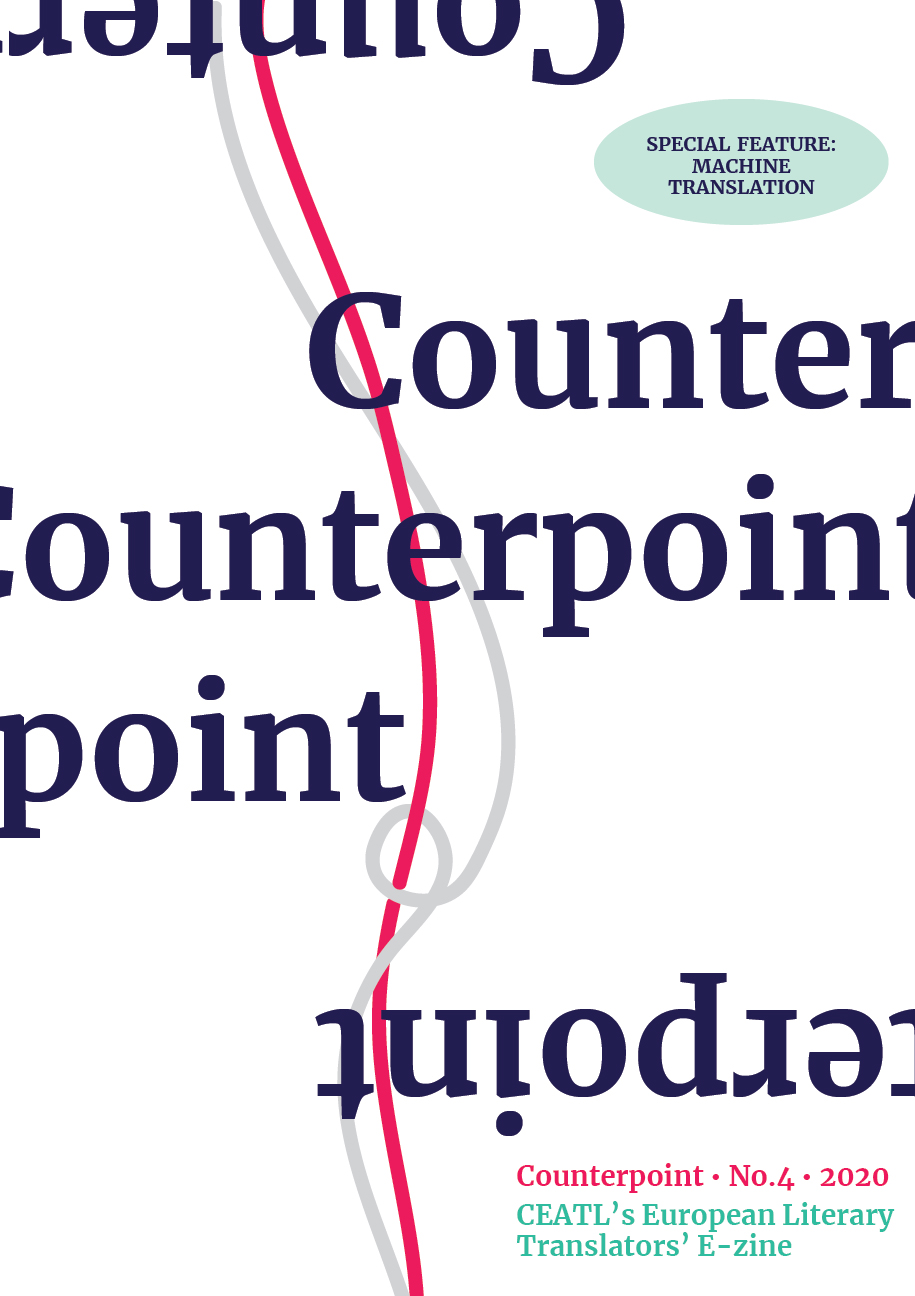
Counterpoint · No.4 · 2020 : Machine translation and Literature PDF
Preview Counterpoint · No.4 · 2020 : Machine translation and Literature
When it comes to the translation of literary texts, the question of how useful machines could be has for a long time been met with cynicism and fear. But recent developments show that machine translation in its many forms could very well become part of a literary translator’s life in the not so far future.
What would that be like, what would it entail? Would it be ‘game over’ for literary translators? Will they be turned into high-end editors, correcting machine produced errors? Will translators still be able to engage with the author’s voice in a text in the same way as before, when there’s also the machine’s voice to be dealt with? What about the copyright of translators when a machine does part of the job? These and other intriguing questions will be the topic of our special feature.
In addition you’ll find other stimulating contributions in this issue, concerning developments within CEATL, and the world of translators at large – from the benefits of a dictionary of variants in German, to the political backdrop of the career of a Polish translator.
